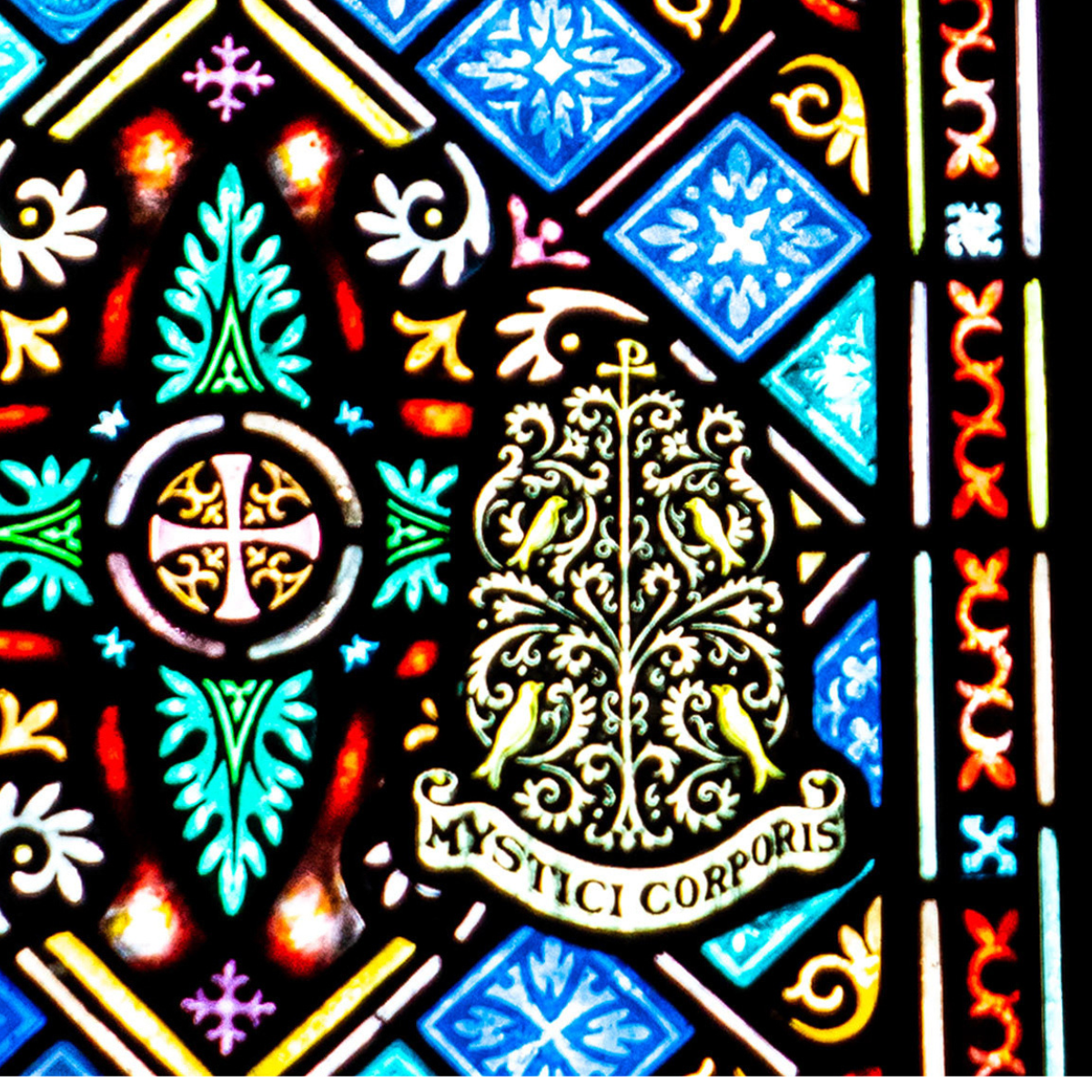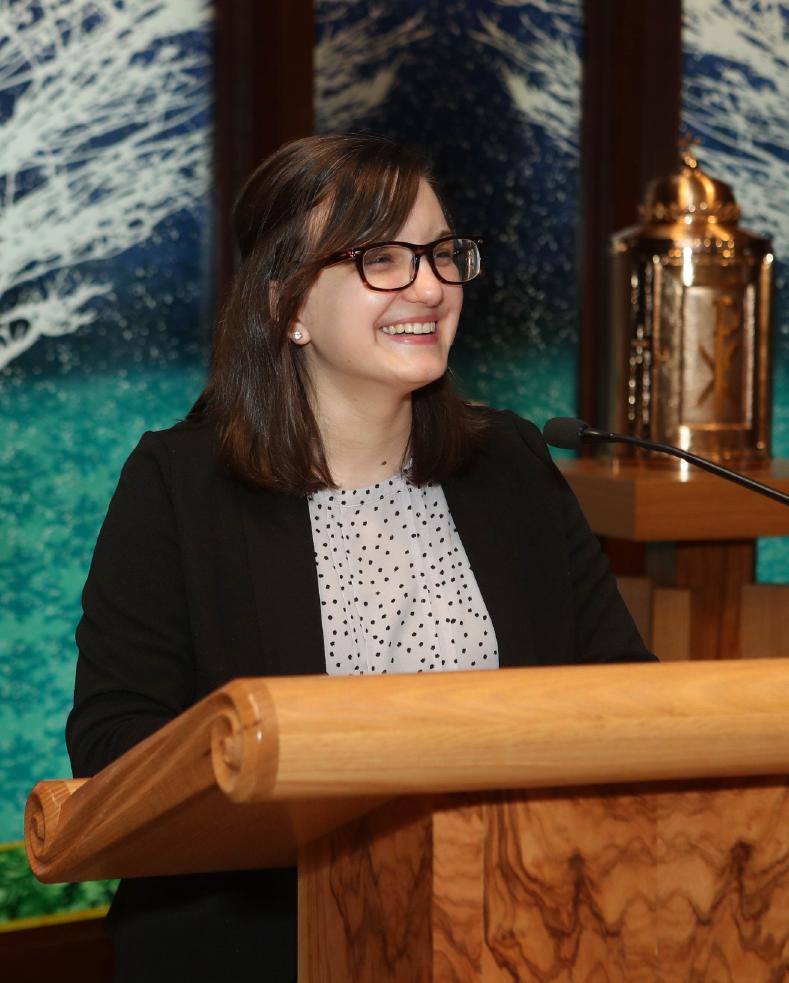 Home
Home
Master of Divinity – Lay Ministry
The Master of Divinity – Lay Ministry (MDiv)
The Master of Divinity (MDiv) program is an intensive three-year academic degree designed to equip graduates to serve as church leaders and lay ecclesial ministers. It is a comprehensive degree that includes a broad study of theology, as well as pastoral ministry coursework, Field Education, Clinical Pastoral Education, and formation. This program is well suited for those interested in exploring their call to lay ecclesial leadership in Christian communities. The formation program addresses the while person, attending to human, spiritual, intellectual, and pastoral development.


At a Glance
Formats
In-Person
Hybrid
Length
3 Years
Application Deadline
Rolling Admission
Professional Outcomes
Chaplain
Campus Minister
Secondary Education
Parish Ministry
Master of Divinity – Lay Ministry Overview
The MDiv degree requires the completion of 78 credits, which includes 42 credits in our Collegeville Core and 24 credits in Pastoral Ministry courses with 3 credits of unrestricted electives. This program also contains Ministerial Formation requirements, such as Clinical Pastoral Education (3 credits), Field Education (6 credits), and Spiritual Direction/Companioning. This program, done full time, will take about 3 years to complete, and requires on-campus participation for at least half of the degree program, which can be satisfied either in academic year or summer.
Degree Breakdown
Collegeville Core
42 Credits Total
Pastoral Ministry
24 Credits
Electives
3 Credits Total
Formation Requirements
9 Credits Total
Collegeville Core – 42 Credits
Sacred Scripture: 12 Credits
• Two New Testament Electives
• Two Old Testament Electives
Systematic Theology: 15 Credits
• Two Doctrine Electives
• Two Moral Electives
History of Christianity: 9 Credits
• History of Christianity I & II (6 credits)
• One History of Christianity Elective
Liturgy: 3 Credits Total
Spirituality/Monastic Studies: 3 Credits
Pastoral Ministry – 24 Credits
• Theology and Practice of Ministry: 3 Credits
• Integration Seminar: 3 Credits
• Pastoral Ministry Electives: 18 Credits
Electives
• Three credits of elective coursework from the academic catalog.
Formation Requirements: 9 Credits
• Clinical Pastoral Formation (CPE): 3 Credits
• Discernment in Prayer: 0 Credits
• Field Education: 6 Credits
• Spiritual Direction & Companioning: 0 Credits
Degree Outcomes
Lay persons who graduate with the Masters of Divinity Degree will:
- Demonstrate a knowledge of the history and development of the Bible and Catholic theology, including the Church’s sacramental life, ministries, moral and social teachings.
- Exercise leadership which incorporates practical theological reflection on worship, catechesis, biblical interpretation and preaching, pastoral care, administration, and social ministries.
- Demonstrate a commitment to Christian maturity through ministerial ethics, respect for cultural diversity, and lifelong learning about the Christian faith.
- Incorporate the Benedictine charisms of biblical, liturgical, and communal life into their ministerial identity and practice.
Special Opportunities
- Lay MDiv candidates can earn their MDiv with a full-tuition scholarship, on-campus housing support, and a stipend while working in a local parish, campus ministry, or other ministerial placements through the Conversatio program.
- Some students choose to combine their Master of Divinity program with the Certificate in Spiritual Direction. Contact admission for more information [email protected]
A Benedictine Approach to Pastoral Ministry
The mission and identity of Saint John’s School of Theology has deep roots in the Catholic and Benedictine tradition, which bears impact on our pedagogical and formational practices. Saint John’s School of Theology and Seminary approaches teaching and formation for pastoral ministry from a Benedictine perspective by:
- Contemplative pedagogy in the classroom: Our classes incorporate prayer, reflection and space for discernment, relying on monastic practices like statio and lectio divina.
- Commitment to stability: Our approach to pastoral theology takes seriously our contextual rootedness, and prizes stability as commitment to the cultural locations and communities where ministry unfolds.
- Listening and hospitality: We form ministers to gain a disposition of deep listening for pastoral work and to discover Christ in pastoral interactions, especially when “welcoming the stranger.”(RB 53)
- Spiritual direction and peer companioning: attentiveness to spiritual formation and spiritual growth is integral to our curriculum and to our formation requirements.
The three year Master of Divinity program for lay ministry candidates readies students for church leadership as lay ecclesial ministers. Consistent with Co-Workers in the Vineyard of the Lord, the formation program addresses the whole person, attending to human, spiritual, intellectual, and pastoral development.
Theological Integration
Academic Excellence
- Obsculta Journal – Each year students, with the oversight of a faculty member, publish a student journal of theology.
- Language Training – Saint John’s regularly offers coursework in Greek, Latin, and Hebrew.
- Alcuin Library – Home to the Saint John’s Bible and the Hill Museum and Manuscript Library, Alcuin contains one of the largest theological collections in North America.
- Conference Support – Saint John’s financially supports students to attend conferences to hone their academic writing.
Spiritual Formation
- Midday Prayer & Convivium – Every Thursday students, faculty, and staff gather for an ecumenical midday prayer and shared meal.
- Monastic Horariums – Saint John’s Abbey and The Sisters of the Order of Saint Benedict pray the Liturgy of the hours every day.
- Spiritual Direction – While not required in the MTS curriculum, students are able to take advantage of Spiritual Direction with the monastic communities.
- Daily Mass – There are many options for daily Mass with in the local community, and Tuesday Mass is offered in Emmaus Hall.
Student Experience
- Community Retreat – Every year Saint John’s hosts a community day of retreat for all students, faculty, and staff.
- Student Government – Events are planned throughout the year by the student government for students.
- Student-Led Retreats – Student government hosts two student retreats a year, one in the fall and one in the spring.
- Embedded Experience – our graduate students have full access to the dining halls, sporting events, fine arts programming, weightrooms, campus ministry, etc. of the College of Saint Benedict and Saint John’s University.
Application Process
Saint John’s uses a robust application software, Slate, for the application process. Prospective students will create a username and password, and then upload/request pertinent information directly into Slate. After beginning an application, students can log back into the application portal and check their progress.
If you have any questions/concerns about Slate and the admission process, please reach out to the Admission Office: [email protected]
Written Narrative
Applicants are required to upload a written narrative as a part of the application. This narrative should be about 800 words. The narrative should address the applicant’s professional and vocational goals, their experience in ministerial or service settings, and their particular interest in studying at Saint John’s.
Transcripts
- Official transcripts of post-secondary coursework must be sent from the Registrar’s Office to the Admissions Office.
- A bachelor’s degree from an accredited college or equivalent is required.
Contact Information for Sending Transcripts:
Admissions at Saint John’s School of Theology and Seminary
P.O. Box 7288
Collegeville, MN 56321
Resume/CV
Applicants are required to submit an updated résumé outlining personal, educational and professional backgrounds.
Letters of Recommendation
- MDiv applicants are required to submit 3 letters of recommendation, from educational or professional contacts, within the online application system. The MDiv requires that 1 of the 3 letters must come from an employer who can speak to the applicant’s potential for ministry.
- Recommenders should be able to speak to the academic ability, leadership qualities, communication skills, and overall readiness for graduate theological study.

Next Steps
For those planning to serve the Church and the World through lay ecclesial ministry, the Master of Divinity prepares students in the breadth of the Christian tradition, pastoral ministry coursework, and hands-on ministry experience through CPE and Field education. Explore the Master of Divinity (MDiv) – request detailed information, arrange a campus visit, or begin your application today.

